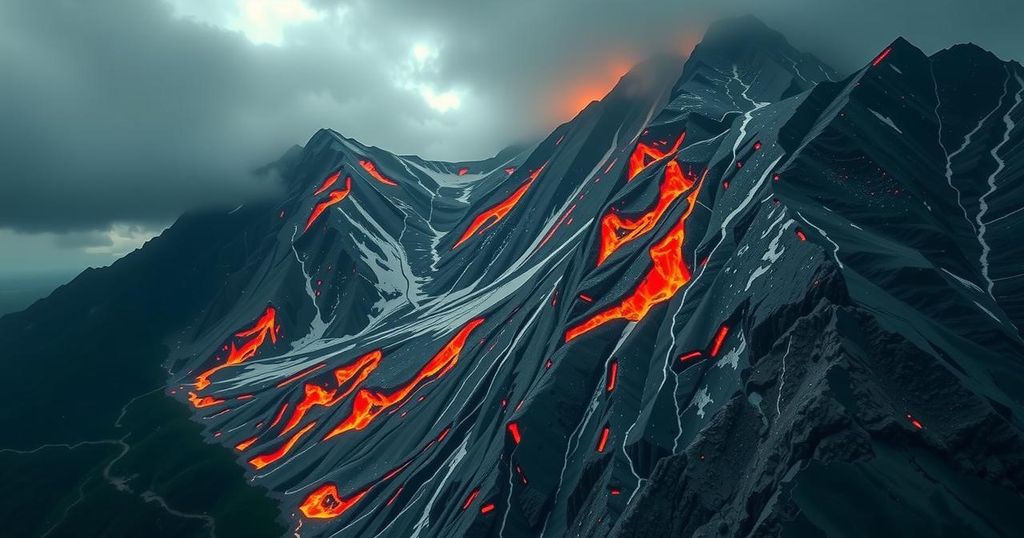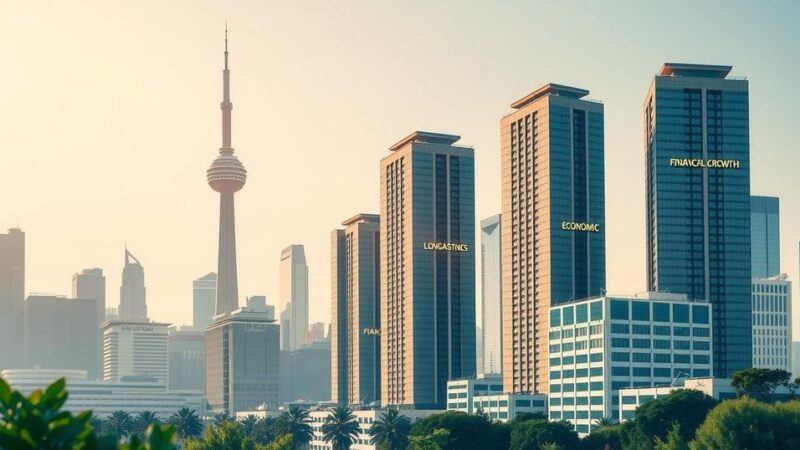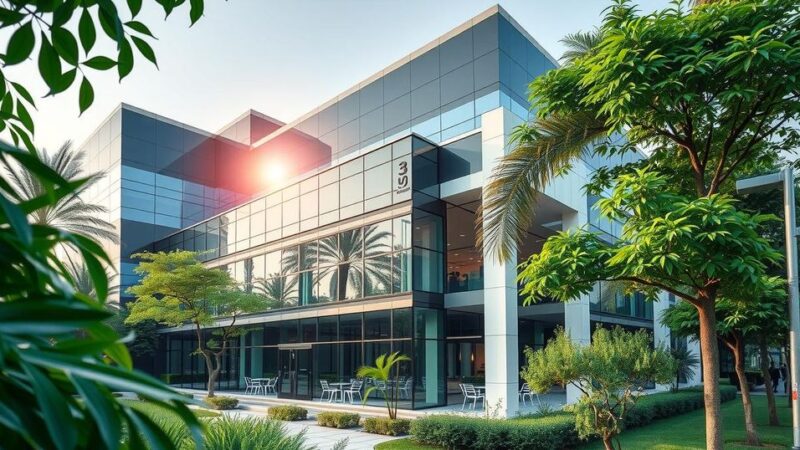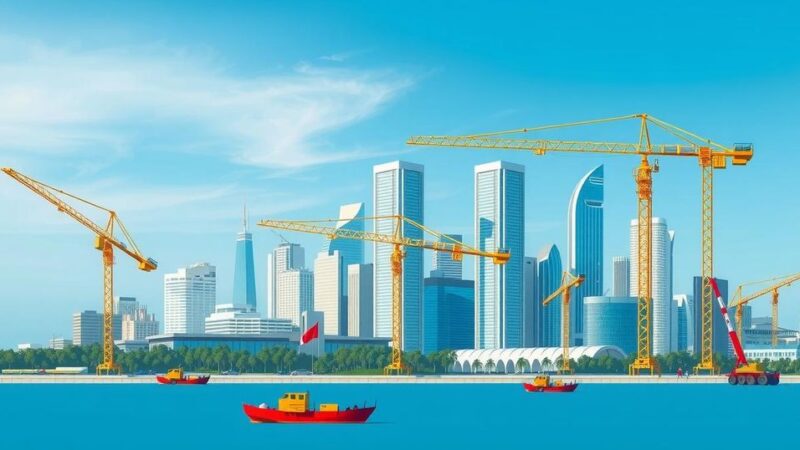A mountain collapse in the Democratic Republic of Congo exposed significant copper reserves, drawing public attention to colonial exploitation and prompting calls for protective measures against foreign intrusion. The incident highlights the ongoing tensions surrounding resource ownership and the increasing global demand for copper.
A significant geological event in the Democratic Republic of Congo has drawn attention as the collapse of a mountain unveiled substantial copper reserves. This incident occurred in the mineral-rich region of Katanga, which is known for its abundance of high-quality copper. The footage capturing this dramatic collapse has been widely circulated, prompting discussions about historical colonialism and foreign exploitation of Congolese resources. The mountain collapse took place amidst a gathering of onlookers, many of whom were seen fleeing as large boulders cascaded downwards. The site of the incident highlighted Compania’s rich mineral assets, particularly copper, which is a critical resource for various industrial applications, including electrical wiring and renewable energy technologies. As awareness of the global demand for copper increases, responses from the public on social media platforms have manifested a protective sentiment towards Congolese heritage and resources. Observers have taken to platforms such as X to voice strong opinions against foreign intrusion, advocating for Congolese ownership of their natural resources. Public sentiment has resonated with comments urging a ban on entries from countries perceived to have historical ties to colonialism. Furthermore, the rich copper deposits in the region contribute significantly to the global supply chain, especially in the wake of increasing demands within the electric vehicle and renewable energy sectors. The incident is indicative of underlying tensions regarding resource management and ownership in regions with a troubled colonial past. It reflects the complex relationship between resource-rich nations and global powers seeking to benefit from those resources. This geological event is a reminder of the ongoing conversations around resource governance, emphasizing the need for more equitable practices that respect local ownership and the rights of indigenous populations.
The Democratic Republic of Congo, specifically the Katanga region, is endowed with vast mineral resources, particularly high-grade copper, making it a focal point for global mining interests. Historically, the region has faced challenges stemming from colonialism and foreign exploitation, leading to complex socio-economic dynamics. With the increasing global demand for copper, especially in green technology sectors, the stakes are high as countries navigate the balance between economic development and ethical resource management.
In conclusion, the mountain collapse in the Democratic Republic of Congo has not only uncovered significant copper reserves but has also reignited crucial discussions concerning the ownership and exploitation of natural resources. The visible reactions from the public underscore the desire for self-determination and protection of national resources from foreign entities. As the world continues to shift toward sustainable energy sources, Congo’s role as a supplier of high-quality copper will likely become increasingly prominent, advancing the conversation around equitable resource governance.
Original Source: www.hindustantimes.com






